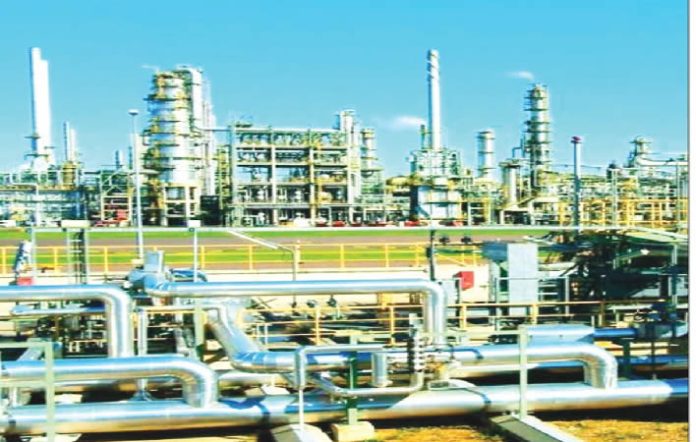PALPABLE anxiety pervaded the nation recently over billionaire investor, Alhaji Aliko Dangote’s outcry that International Oil Companies (IOCs) are not willing to supply the refinery with crude oil, a weighty allegation coming from a serious-minded businessman and must be quickly looked into because we cannot fathom the possibility of a cabal at work to destroy a project many consider to be a dream come true.
Notwithstanding some form of defense being offered against the allegation, there is need to critically examine the issues raised because here is a man who is hardly heard. If he is crying wolf where there is none, the facts should be laid bare because the benefits of the refinery project are too enormous to starve it of crude oil, which we heard was not a problem, but rather how to refine it. This was the idea behind a refinery project of that magnitude with NNPC’s input, so it would be the height of folly to allow it suffer a still birth.
The management of the 650, 000 barrels per day (bpd) Dangote Refinery and Petrochemicals Company had accused IOCs operating in Nigeria of planning to ensure the failure of the $20 billion refining facility. Dangote accused IOCs of crude oil price manipulation, claiming the oil firms are deliberately sabotaging the refinery’s successful operations.
Vice President, Oil and Gas at Dangote Industries Limited (DIL), Devakumar Edwin, said the multinationals were deliberately frustrating the refinery’s efforts to buy local crude by jerking up premium price above the market price, compelling the refinery to import crude from distant countries like the United States, leading to significantly higher costs. According to Devakumar “there is a disturbing plot by IOCs to inflate crude prices and create artificial shortages.
This puts the NUPRC, an affiliate of the NNPCL on the spot. What happened to the Domestic Crude Oil Supply Obligations (DCSO) as enunciated under Section 109(2) of the Petroleum Industry Act (PIA). A recent meeting with stakeholders means that the NUPRC may not have seen to its full adherence by IOCs, in which case, the IOCs may be keener on sustaining imports to feed the Western economies where they have their headquarters, at the detriment of the country.
Recall that Dangote elicited a feeling of foreboding when he earlier hinted at offshore sourcing of crude feedstock, saying that the “supply of Nigerian crude is insufficient or unavailable and sometimes unreliable.
As reported, the fear expressed by Dangote was that while NNPC may be able to fulfill the refinery’s crude requirements at this ramp-up stage, it could struggle to exclusively fulfill demand from the plant at full utilisation and this may leave the refiner exposed to supply disruptions. But by seeing import substitution as a flexible option, it is likely that Dangote did not see the attitudes of the IOCs coming.
He said that “we keep importing crude from the US because the IOCs refuse to sell to us. That’s the problem. If IOCs could be selling to us, we wouldn’t have any crisis; we would be selling at a price everybody would be happy with. Look at what the dollar rate is, if we are buying crude at a dollar that exchanges for N1,484, how much do you want us to sell? But if we are getting it in Nigeria, the cost will reduce and it will be cheaper. If the Federal Government allows us to buy in Nigeria, it will be cheaper. What we need to do is just to refine and sell. But in this case, we have to import from the US, so it’s very expensive. Some people are just playing politics with this thing to frustrate the refinery.”
Indeed, no serious government would allow such weighty allegations to be swept under the carpet. Let the Federal Government and regulators give the refinery the necessary support in order to create jobs and prosperity for the nation.”
Nigeria must not remain a country which exports crude oil and imports refined petroleum products. They should take urgent steps to stop the practice of dumping expensive refined products in Nigeria thus making the country dependent on imported products.


